The delegation conducted a study visit to three leading Technical and Vocational Education and Training (TVET) institutions in Gauteng Province—Tshwane South TVET College, South West Gauteng TVET College and Ekurhuleni West College—with the following objectives:
1.To gain a comprehensive understanding of each college’s institutional development, programme offerings, learner skills training and workshop infrastructure;
2.To explore the use of vocational skills competitions as a platform for strengthening China–South Africa TVET cooperation, learner exchanges, curriculum alignment and cultural interaction;
3.To identify potential collaboration in frontier areas such as unmanned aerial systems, smart agriculture, solar energy storage, 3D printing, new energy vehicles, CNC machining and artificial intelligence software development;
4.To build on the outcomes of the July–August 2024 visit by the South African Department of Higher Education and Training (DHET) to China, deepening mutual learning and consolidating the bilateral TVET partnership.
Date | Time | Institution | South African Delegation | Chinese Delegation |
11 July 2025 | 10:30–14:00 | Tshwane South TVET College (Pretoria West) | Mr Sabelo Buthelezi (DHET: Chief Director Special Projects Unit), Ms Kgomotso Hiine (DHET: Projects Intiation), Ms Nomsa Mathey (Deputy Principal Academics) Mr James Ntshalintshali (Head of Engineering Department) Mr Francois Pienaar (Programme Manager – Centres of Specialisation) | Chen Yunhe (Secretary‑General), Cao Dasong (Interpreter) |
11 July 2025 | 14:30–17:00 | South West Gauteng TVET College (Johannesburg) | Mr Sabelo Buthelezi (Chair), MrMJ Monyamane (Principal), Mr Wandile Selemi (Campus Manager) Mr Takalani Ratshilumela (Curriculum Manager) Mr Aubrey Sebe (Programme Manager – Centres of Specialisation) Mr Martin Somo (Programme Administrator – Centres of Specialisation)
| Chen Yunhe (Secretary‑General), Cao Dasong (Interpreter) |
16 July 2025 | 09:00–16:00 | Ekurhuleni West College (Tembisa Campus) | Mr Malusi N. Mncube (Acting Campus Manager ), Commercial Manager, Academic Office Director, Foundation Education Head, Mr Buthelezi, Ms Hiine | Chen Yunhe (Secretary‑General), Cao Dasong (Interpreter) |
Institutional Profile: Five core programmes—Welding, Machining, Electrical Engineering, Solar Technology and Boilermaking -. The solar training workshop has only a single demonstration panel, insufficient for full course delivery. A Smart Manufacturing programme is scheduled to commence in 2026.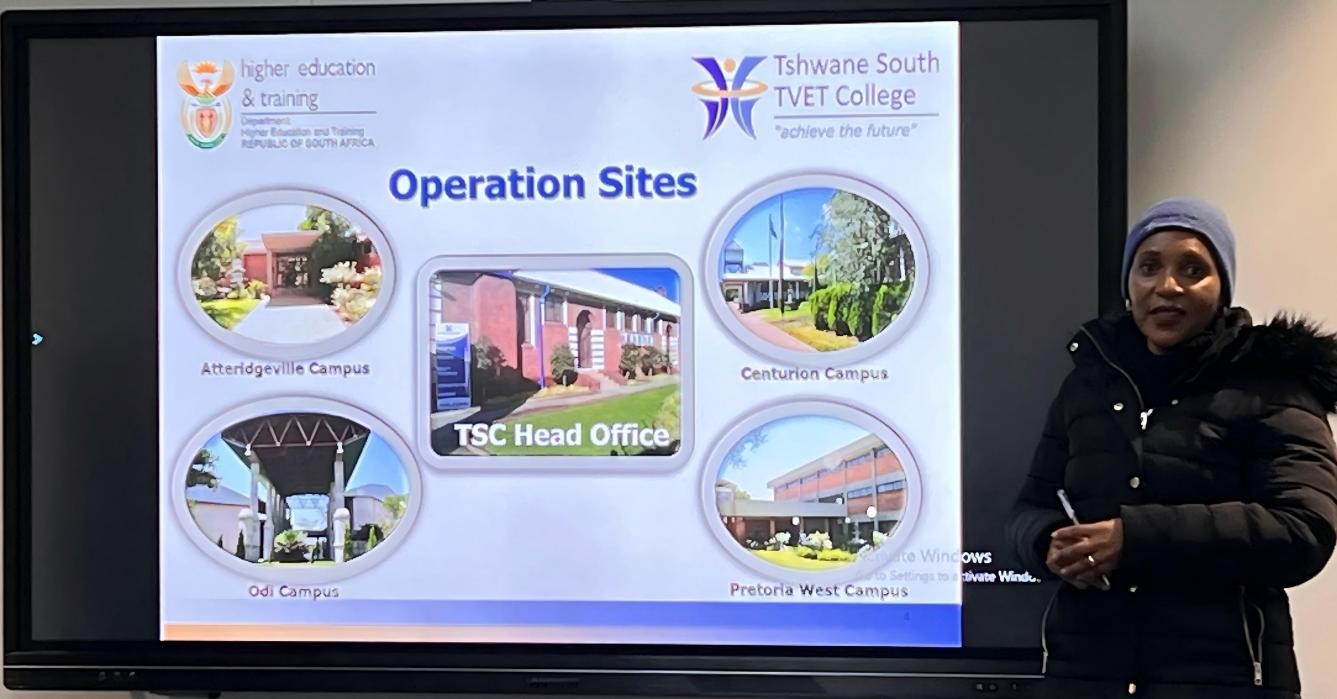
Figure 1: Ms Nomsa Mathey (Deputy Principal Academics) on the development of the institution
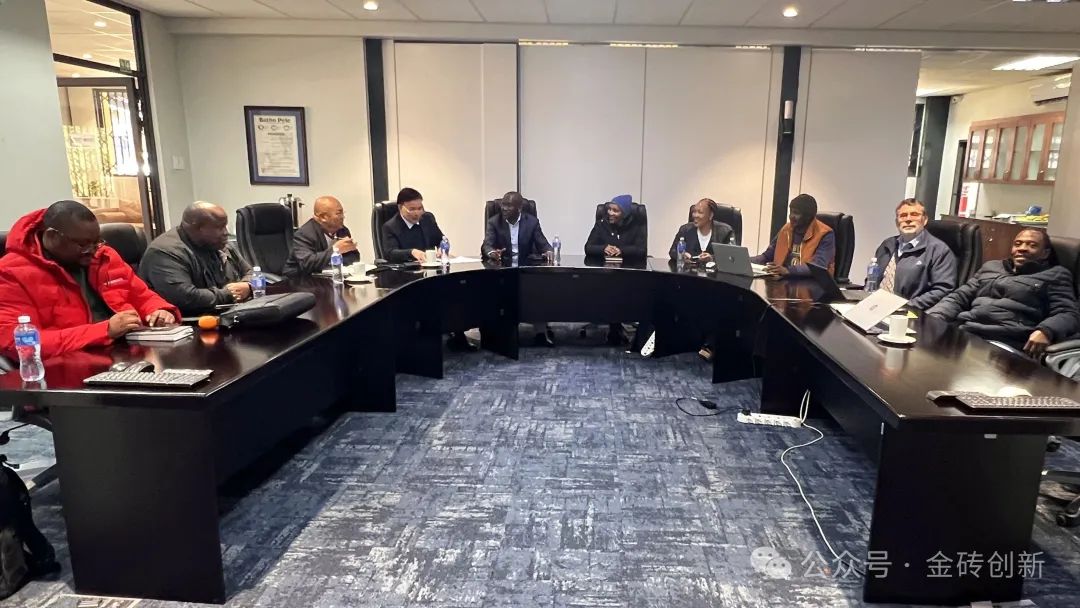
Figure 2: Discussion of international cooperation programmes between the Chinese delegation and heads of institutions
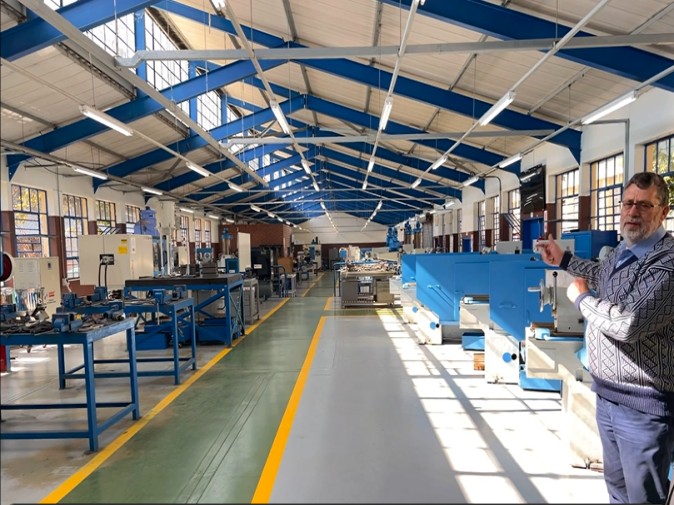 | 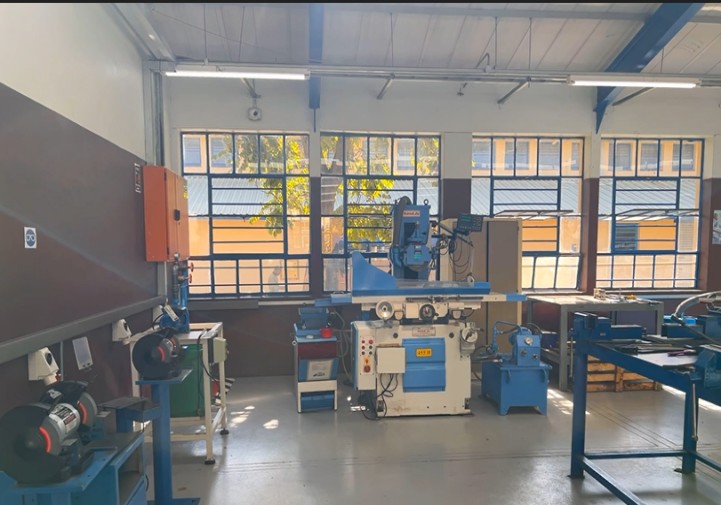 |
Figure 3:A teacher of the institution introduces the workshop
Faculty Development: The college employs a dual‑mentor model (industry mentors paired with campus lecturers) and encourages staff to pursue advanced training in China.
Teaching Model: The proposed training model allocates 50% to classroom instruction and 50% to industry placements, with theory and practice interwoven throughout the semester. An outcomes‑based assessment framework aligned to employment is under development.
China Training Plans: Discussions focused on tailored in‑China training programmes for faculty and learners, supplemented by online Chinese language and technical modules.
Entrepreneurship Support: Recommendations include establishment of an incubation platform to encourage student innovation and facilitate start‑ups.
College Overview: Founded in 2002, with an enrolment exceeding 3 200 learners. The Agriculture and Software Engineering campuses are newly established, with planned specializations in Smart Agriculture, Smart Manufacturing and Information Security.
Distance Learning & Language Skills: The college has trained nearly 20 000 IT learners via remote delivery. Connectivity challenges persist in rural areas. Recognising the strategic advantage of Mandarin proficiency, the college proposes appointing Chinese language instructors.
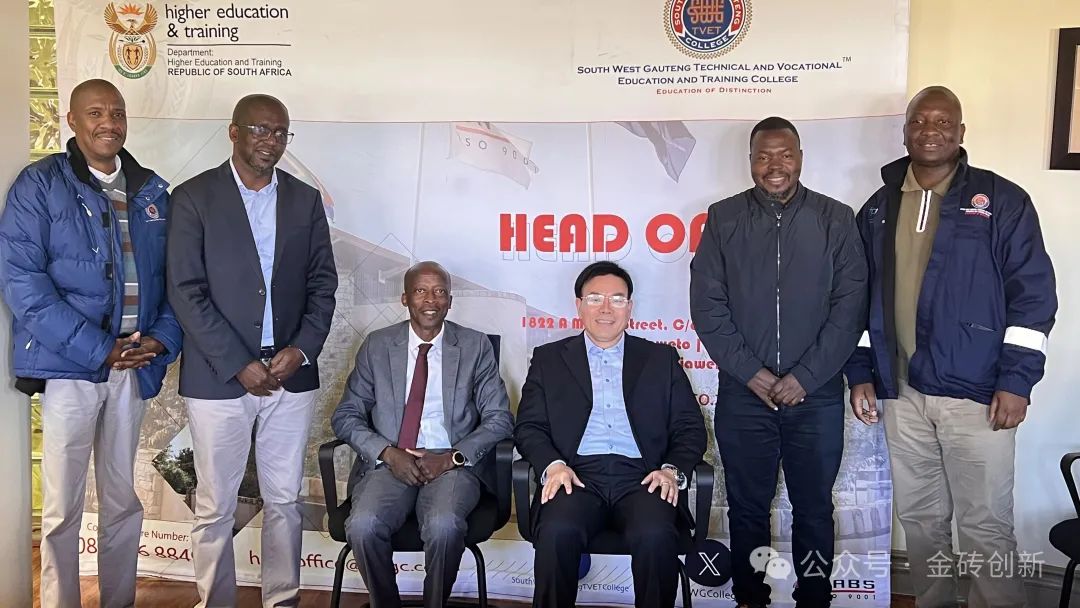
Figure 1:Group photo of leaders of institutions and heads of delegations
Chinese Delegation Response:
Integrate Smart Agriculture programmes covering soil testing, seed propagation, UAV‑assisted fertilisation, precision irrigation, pest monitoring and mechanical harvesting, and include agricultural equipment maintenance modules.
Develop a blended Mandarin language training platform combining online and face‑to‑face instruction tailored to vocational contexts.
Introduce short‑cycle, modular courses with milestone assessments to meet industry demand.
Workshop Tour:
Delegates inspected the Machining and CNC workshops, exchanging technical insights on equipment configuration, instructor competencies and workshop management. Both parties expressed interest in co‑operating on renewable energy and Smart Agriculture initiatives.
 | 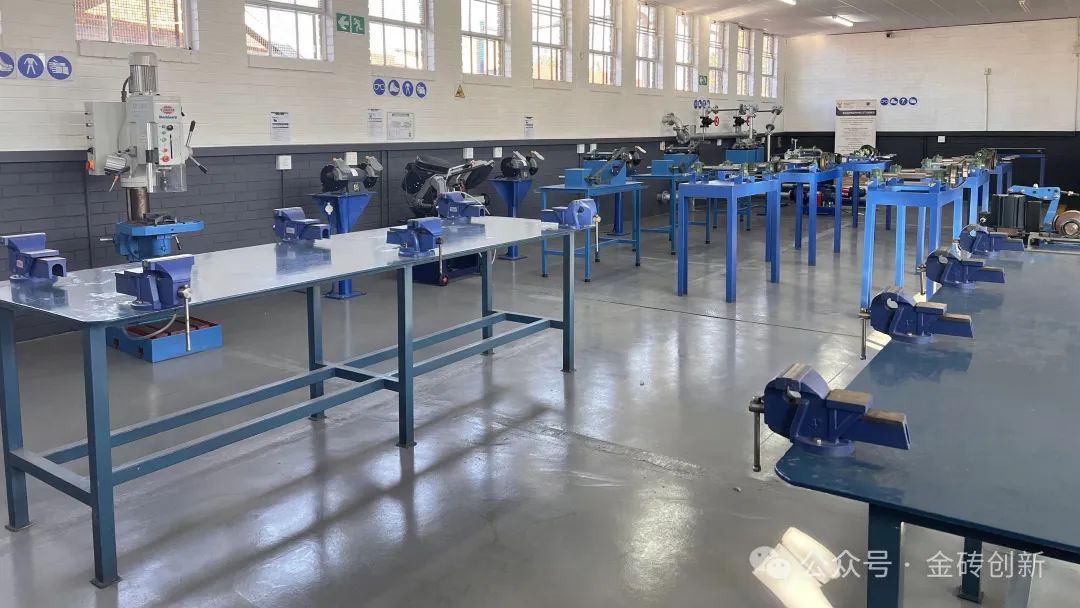 |
Figure 2:Principal Monyamane and Mr Chen Yunhe, Secretary General of the Chinese Delegation, on a tour of the newly completed practical training workshop.
UAS Programme Development: Joint planning commenced to establish South Africa’s first Drone Manufacturing and Operations programme, with application underway to the South African Civil Aviation Authority (SACAA) for training accreditation.
Campus Factory Proposal: A campus‑based factory model was proposed, enabling students to combine theory, hands‑on assembly and commercial operations. Revenues generated would be reinvested to expand the facility. (China will provide detailed factory design and operational blueprints.)
Facility Tour: Delegates visited the Carpentry & CNC workshops, Smart Electrical Control laboratory, BIM Design Studio (Revit & AutoCAD), Geology laboratory and Vocational English classroom.
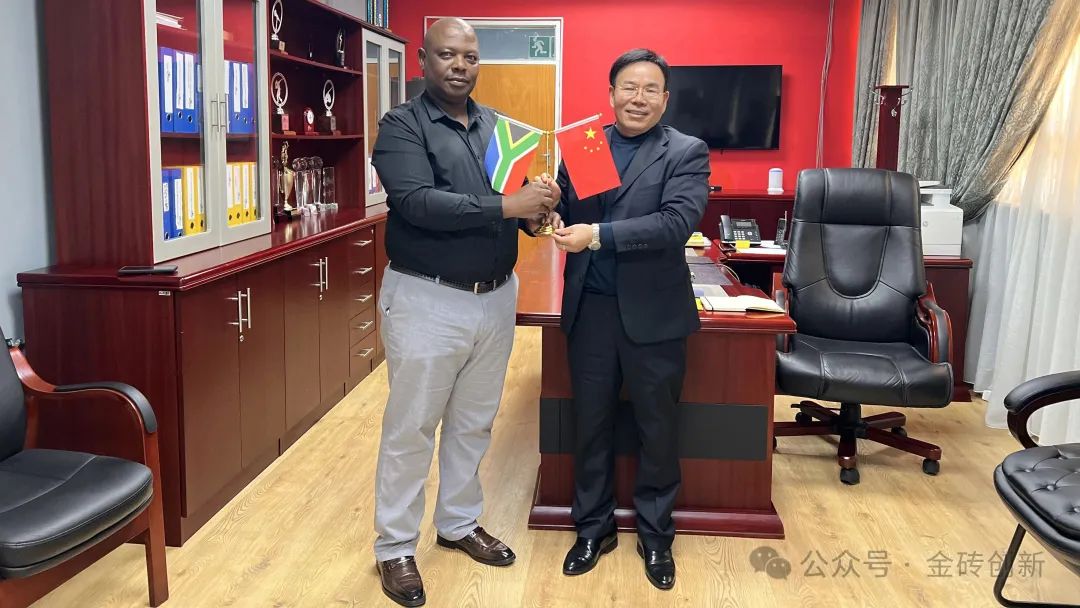
Figure 1:Secretary General Chen Yunhe presented the flag symbolising the friendship between the two countries to the Mr Malusi N Mncube Acting Campus Manager.
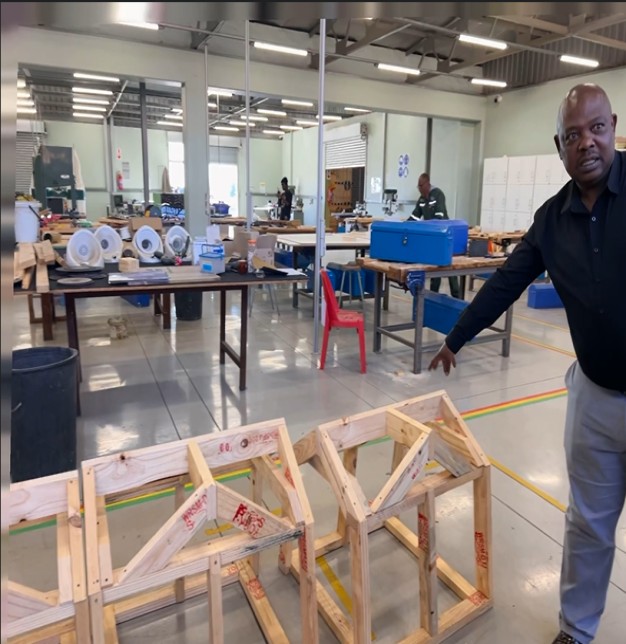 | 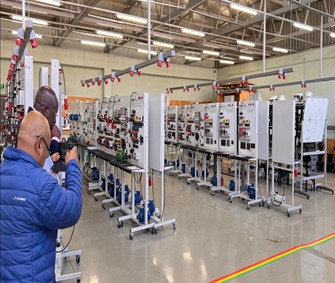 |
Figure 2:Mr Malusi N Mncube Acting Campus Manager briefed the delegation on the Carpentry and Electrical Engineering training rooms
1. Infrastructure: Workshop equipment is ageing and insufficient in quantity. There is a lack of AI, IoT, 3D printing, UAS and precision CNC machinery required for advanced skills training.
2. Faculty Expertise: Teaching staff largely lack frontline industry experience. Curricula and teaching materials are outdated. Professional development and certification pathways are under‑developed.
3. Curriculum & Delivery: Instruction remains theory‑heavy with limited industry co‑design. Digital learning platforms are nascent and require regular updates and maintenance.
5.1 Faculty Capacity Building
Send early‑career lecturers to China for extended exchange (minimum three months).
Invite Chinese vocational experts and master technicians to co‑teach and co‑develop programmes in South Africa.
5.2 Joint Curriculum & Standards Development
Collaborate on TVET standards for Drone Manufacturing, Smart Agriculture and Solar Energy Storage specialisations.
Implement modular curricula with competency‑based assessments and mechanisms for mutual recognition of qualifications.
5.3 Language & Cross‑Cultural Training
Establish Mandarin for Vocational Purposes classes on campus, integrating language modules into technical programmes.
Deploy Chinese language instructors to conduct immersive teaching at South African TVET colleges.
5.4 Industry Engagement & Entrepreneurship
Create student incubation hubs and campus enterprise units; establish seed funding for learner‑led ventures (e.g. drone‑based services: façade cleaning, power line inspection, precision agriculture, urban logistics).
Develop a seamless Skills Training → Employment → Entrepreneurship pathway.
5.5 Policy Support & Bilateral Mechanisms
Advocate for a China–South Africa TVET Cooperation Memorandum of Understanding.
Establish a joint fund to support faculty development, equipment acquisition and workshop upgrades.
Recommend DHET facilitate work visas and secure accommodation for Chinese vocational trainers and experts.
The visit to Gauteng’s TVET colleges deepened mutual understanding of vocational education systems, identified critical infrastructure and competency gaps, and charted a pragmatic roadmap for bilateral cooperation. The Chinese delegation reaffirmed its commitment to advancing faculty exchanges, joint curriculum development, digital learning platforms and industry–academia partnerships to establish model centres of TVET excellence in South Africa.
During the visit, preliminary agreements were reached with the Chinese Business Association of South Africa to prioritise employment of bilingual, technically skilled graduates.
This report is submitted for internal review by the Department of Higher Education and Training (DHET), Republic of South Africa.

Scan The Code To Add
Your Exclusive Consultant
